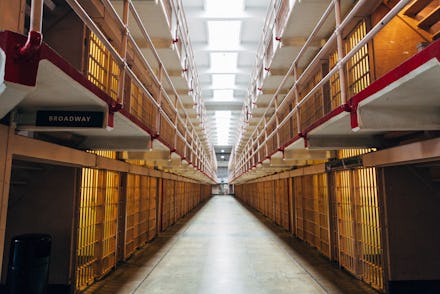Prisons are a public health crisis, the American Public Health Association says

Typically, calls for decarceration — investing in schools and public housing instead of prisons or practicing restorative justice — from activists and grassroots organizations are seen by policy makers as lofty aspirations rather than realistic goals. But the activist perspective on criminal justice got a boost over the weekend from the American Public Health Association, which released a set of overarching policy proposals arguing that prisons and public health are mutually exclusive. Addressing the current coronavirus crisis holistically, the APHA argued, will require the abolition of incarceration in the United States.
The APHA is comprised of 25,000 members, publishes a well-respected public health journal, and regularly comments on policy. In its announcement calling for the abolition of carceral systems, the APHA has become one of the first and largest non-criminal justice organizations to wade into the conversation of whether the American prison system can be reformed or, indeed, abolished entirely. The U.S. incarcerates more people per capita than any other country in the world, spending trillions of federal, state, and local tax dollars on jails, immigration detention centers, pre-trial detention, and prison upkeep. Specifically, the recommendations concern the COVID-19 pandemic, which has been especially deadly in jails and prisons. America must "immediately and urgently reduce the number of people incarcerated in jails, prisons, and detention centers, regardless of conviction, especially in light of pressing concerns related to COVID-19 transmission," the APHA said.
As Mic reported in June, when individual states were struggling to get their coronavirus responses off the ground, those incarcerated in Los Angeles County were particularly vulnerable to the spread of the virus. As officials were slow to adopt widespread testing, case numbers spiked. The rise in case numbers wasn't just a result of access to testing, but rather a reflection of the jail and prison system itself. Lenore Anderson, the founder and president of Californians for Safety and Justice, told Mic at the time that incarceration increases the likelihood that people will get sick and is counterproductive to maintaining public health. "Independent of COVID, we're talking about a criminal justice system that actually spread poor health by design," she said.
The APHA's statement appears largely informed by calls from BIPOC-led social change organizations. Over the summer, amid the racial justice uprisings, the Movement for Black Lives penned the BREATHE Act, a call for a vast upending of the criminal justice system. Many of the policies outlined in the BREATHE Act addressed America's reliance on prisons and jails, as incarceration is both the legacy of enslavement as well as a huge drain on public funds. The APHA echoed some of the proposal's demands, calling for the "abolition of carceral systems and building in their stead just and equitable structures that advance the public’s health."
The APHA offers recommendations about how to achieve structures that advance public health, ranging from investing in housing and employment to restoring voting rights for current and formerly incarcerated people. Critically, the APHA announcement acknowledges the systemic and racist nature of the criminal-legal system, in that some people are more likely to interact with police, courts, and jails than others. The guidelines advocate for studying the social structures that predetermine one's likelihood of interacting with these systems, and re-allocating "funding from the construction of new jails and prisons to the societal determinants of health, including affordable, quality, and accessible housing, health care, employment, education, and transportation."